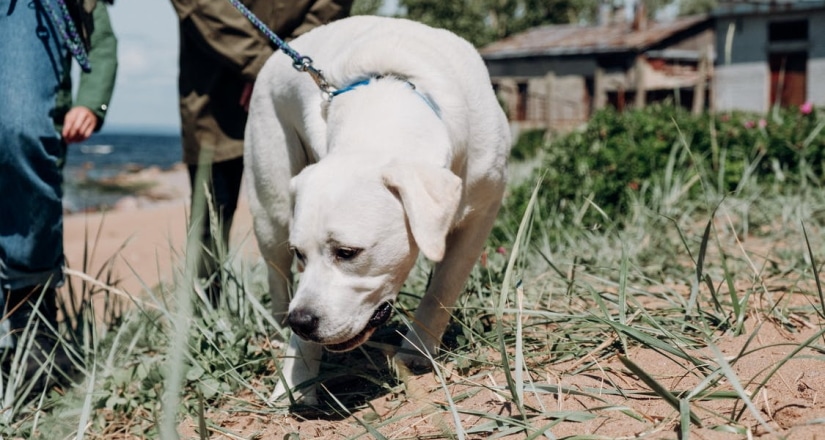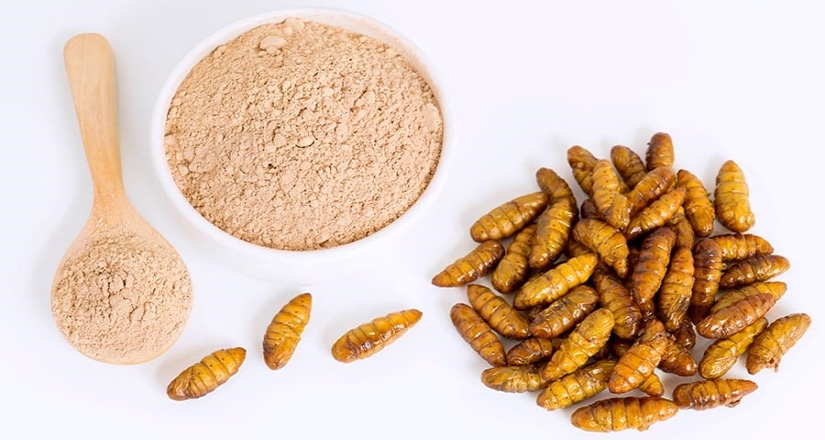Not everyone thinks of including insect protein in a dog’s diet. But, doing so is beneficial in many ways.
People often assume that feeding dogs insect protein is a fad. It may be here to stay, though. Especially when insect kibble can serve as an alternative to any other dog kibble. Insect dog food also comes in the form of hypoallergenic snacks or treats.
Your dog can enjoy eating insect-based snacks as much as they enjoy eating their regular food. Besides, it’s a sustainable food source for your pet. Let’s find out all the ways insect dog food is good for your pet.
It’s Ideal for Dogs With Allergies

One of the main reasons why insect protein is great is because dogs are not usually allergic to them. Dogs get allergies after eating food that doesn’t agree with their digestive system.
Often, these allergies are rooted in the different proteins present in certain foods. For instance, your dog could have an allergic reaction to proteins present in pork meat.
Proteins in meat such as beef, dairy products, and chicken can cause allergic reactions among dogs as well. The same goes for wheat gluten and soy.
However, it cannot be denied that protein is needed to keep your dog healthy. So, it’s important to look for alternative protein sources for them.
This is where insect protein comes in as one of the best dog food for allergies. Dogs are less likely to be allergic to insect protein. This way, they get the right amount of protein needed without the risks of allergic reactions.
Choose a brand producing 100% natural, allergen-free insect foods. A good-quality product will help your dog grow healthier and stronger.
Look out for signs of food hypersensitivity in your dog. These signs include skin rashes and digestive problems. If you observe any of these signs in them, you can try feeding them small amounts of insect protein.
You don’t have to start with full-fledged meals. Light snacks will do in the beginning.
Slowly, your dog will grow accustomed to eating these foods and you can include them in their daily diet.
It’s Good for the Environment

Many of us are taking steps to reduce the damage we cause to our natural environment. These steps include using recyclable materials and taking public transport.
But, did you know that your food habits affect the environment too? The same goes for your dog’s food habits.
Common dog foods like meat cause large emissions along the process of obtaining it. These emissions have an environmental impact like that of cross-country car rides.
Meat production utilizes several natural resources. Water, energy, and other resources are necessary to produce these meaty foods. Also, meat production releases harmful gasses into the air. To prevent the same, it makes sense to reduce meat consumption for dogs.
Pet food production releases over 100 million tonnes of carbon dioxide every year. Insect protein doesn’t have a similar impact on the environment. This sustainable food source conserves natural resources.
A large amount of water is necessary for agriculture each year. But, it doesn’t take too much water to feed insects. The same applies to processing them for food.
Besides, raising insects doesn’t demand expenditure on medicines. But raising livestock often demands medications such as antibiotics.
Insects are pretty resistant to common diseases. So, there’s a smaller chance they’ll pass on diseases to your dog. Moreover, it helps that there isn’t any cruelty involved in using insect protein. Animal cruelty will not be an issue with insect protein production.
You don’t have to replace your dog’s whole diet with insects. You could stick to their regular diet and add some sustainable dog treats to the mix.
In this way, your pet can enjoy their favorite foods and reduce their emissions.
It Helps Dogs Meet Their Nutritional Needs

Another great reason for your dog to switch to an insect diet is it fulfills their nutritional needs.
Insects contain oils rich in several nutrients. One example of an insect-based dog food rich in protein and oil is spider larvae. The oil found here has similar properties to fish oil.
Dogs can meet their daily nutritional needs by consuming this oil. Also, digesting it isn’t too difficult. So, it isn’t very likely to cause allergic reactions in your dog. Besides, using this oil will help reduce the environmental impact of fishing.
Crickets are also emerging as a protein source of protein for dogs. These insects are nutrient-dense and low in fat. You can feed cricket dog food to your pet without worrying about their weight.
But, there aren’t many dog food recipes that contain crickets. You can buy them as readymade snacks or you could get creative and make your recipes for your pet.
It is highly advisable to add crickets and other insects to foods your dog enjoys. In this way, you can help them grow accustomed to eating insects. You can give them good dog nutrition while also making their mealtimes fun.
Letting your dog consume artificial additives will take a toll on their health in the long run. Choose organic brands that let you examine their ingredients list.
Check this list for artificial coloring, flavoring, and common allergens. Organic insect protein will help your dog’s gut health. It’ll also show you an improvement in their skin and fur.
Conclusion
You may still hesitate to watch your dog eat insects if you’re not comfortable with the idea. But, the benefits it offers your dog should outweigh your hesitation.
After all, it’s hard to ignore the many great reasons to start feeding your dog insect protein. You don’t need to revamp your dog’s diet from the get-go.
You can start by introducing insect kibble to their diet once or twice a week. Observe how your dog’s system reacts to the insect protein.
If you see no harmful side effects, you can include it in their daily diet. Your dog might grow to love insect protein if you mix it with their favorite ingredients.
Many dog food brands in the market offer delicious hypoallergenic dog treats. These treats contain a good dose of insect protein.
It wouldn’t hurt to mix things up and let your dog try something new. After all, insect protein is a healthy alternative to meat for dogs.
So, even if it doesn’t work out, it’ll be no harm done.
FAQs
Q – Is Cricket Protein Good for Dogs?
Cricket protein is good for dogs and is now a popular food source for them. Crickets are a rich source of essential vitamins and minerals. All 9 amino acids needed to maintain dog health are present in cricket protein.
They also contain omega 3 and 6 fatty acids. These nutrients support healthy growth in your dog. They help your dog live longer too.
Besides, cricket protein is easy for dogs to digest. This feature makes the protein for dogs with food sensitivity.
Q – Which Protein Is Better for Dogs?
Many people consider eggs to be the best protein source for dogs. But, it’s not uncommon for dogs to face allergies after eating eggs.
The effects of these allergies include itchy and inflamed skin, diarrhea, and more. If your dog faces such allergies, the best protein source for them could be insects.
Crickets and other insects are a rich protein source and are easy to consume for dogs with allergies. Besides, food handling is a concern with protein sources like eggs and meat.
There’s a smaller chance of insects carrying infections during food handling processes. Food sensitive dogs can meet their daily protein requirements with insect protein.
Q – How Much Protein Should a Dog Have Daily?
A healthy dog needs 1 gram of protein for every pound they weigh. For instance, a dog weighing 50 lbs would need to consume 50 gms of protein everyday.
But, if your dogs isn’t the ideal body weight, their protein needs will differ from this standard. All dogs, regardless of their weight, would need at least 18-29% protein in their daily diet. You could even bump it up to 30% if a veterinarian believes your dog needs it.
Puppies need more protein than full-grown dogs. But, you should be careful about feeding too much protein to food sensitive dogs.
Switch to proteins that are easier to digest to meet your dog’s protein needs.
